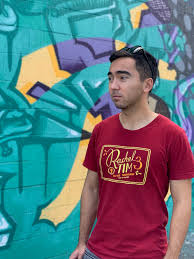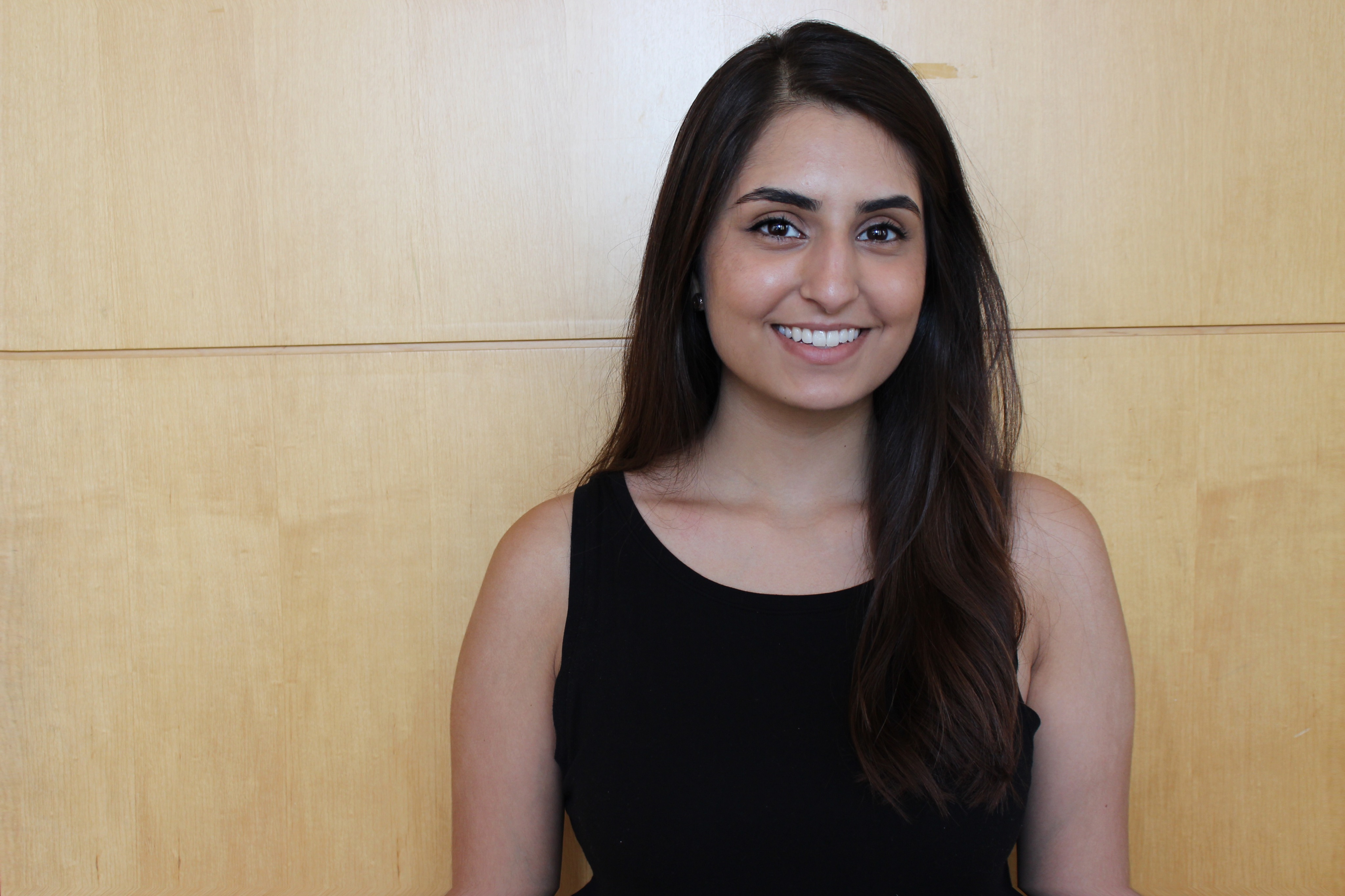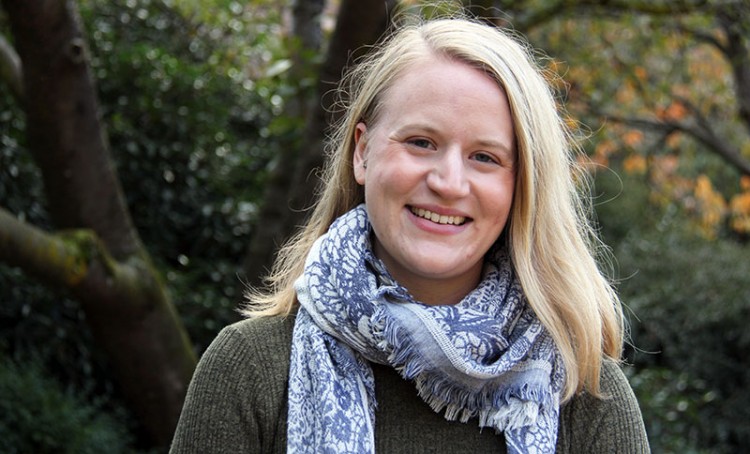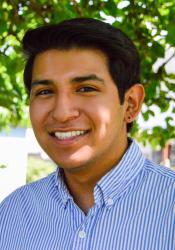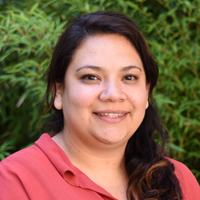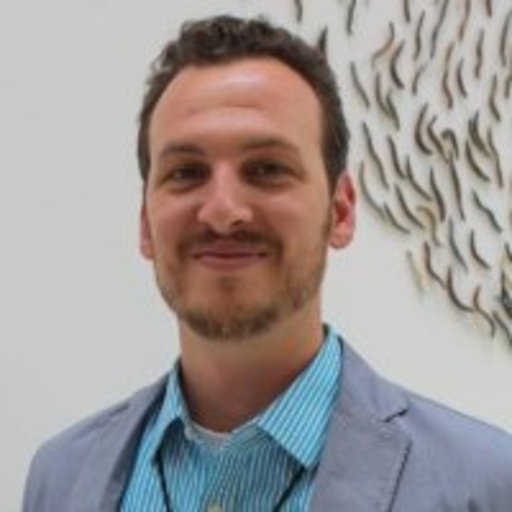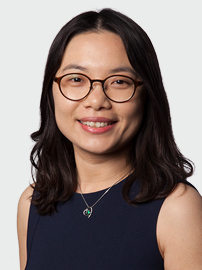Meet a Few of Our Current Students
Each academic year the Harry Bridges Center is proud to offer financial support to students whose work and service is dedicated to issues of labor and social justice. Meet some of our students and the important projects we supported in 2018/19.
|
Alika Bourgette
Pursuing: PhD in History Alika joined the Department of History in 2018 with the support of the Harry Bridges Center for Labor Studies Graduate Recruitment Fellowship. As a scholar he is committed to centering working-class voices in his work. Alika’s dissertation research investigates indigenous labor and social issues situated within the Pacific and North American West in the 19th and 20th centuries. His thesis project examines the fish canning industry at the turn of the twentieth century, in particular tuna and salmon production in the Kakaʻako district of Honolulu with a planned comparative to the Pacific Northwest. As part of the redevelopment efforts of the Waikiki shoreline in the early twentieth century, state and commercial actors worked to affect the systematic erasure of Native Hawaiian and resident Asian spaces. Alika's study utilizes extensive collections of oral histories from marginalized Waikiki residents of color to provide counterpoint to notions of indigenous passivity and ‘native’ savagery that accompanied this erasure and was perpetuated by hegemonic colonial influences. His work uncovers instances of everyday life and resistance to colonial institutions through this examination of pre-recorded oral histories from Honolulu residents of color, placing working-class voices and experiences in Honolulu into the historical record. Prior to his attendance at the UW, Alika served as an AmeriCorps VIP Fellow for the Cross Cultural Centers at California State Polytechnic University, San Luis Obispo. Following his passion for social justice work, he supported programming and events for underrepresented students on campus. |
|
Ami Nanavaty
Pursuing: PhD in History Amy also joined the Department of History last year as a Graduate Recruitment Fellow. She joined us from the University of Kansas. During her undergraduate work Ami pursued several research projects many revolving around marginalized populations in the U.S. She also partook in several service positions in the community, including involvement with the Willow Domestic Violence Center as an advocate for human trafficking survivors. She was also involved with Habitat For Humanity and worked to provide affordable housing to low-income families through fundraising, advocacy, education, and building. This work encouraged KU students to take a serious look at inequality and poor housing conditions of fellow community members and work to make change. Interested in the connections between South Asian and Black American histories at the UW she plans to research the interdependence of South Asian and Black American racial formations, particularly through the simultaneity of anti-colonial South Asian American radical activism and Black activism in the early 20th century. While pursuing the PhD she also hopes to extend her research goals into her personal and community life by working with racial and gender justice activist projects in the greater Seattle area. |
|
Brian Serafini
Pursuing: PhD in Sociology Currently pursuing his doctoral degree, Brian’s dissertation focuses on the question, “Why do fast food workers willingly exert their labor despite the low pay and little prestige afforded to the job?” Brian’s research explores unexpected pathways for agency that present themselves in the fast food labor process, filling a less-explored gap in labor research that addresses the conditions and processes related to worker consent, rather than resistance, under low-wage circumstances. His research, drawn from participant observation that spans 750 hours, challenges the assumptions often made about the requirements of hard work and notions of employee replaceability in this industry. So far he has explored how fast food workers are “making meaning out of monotony” finding that “workers can and do enact agency and find dignity in a low-pay, low-status occupation characterized by intense routinization and coercive control systems.” However, he suggests that there is perhaps “a cautionary and pessimistic tale here, that these strategies of dignity may reify rather than challenge existing employment relations,” which may help explain why fast food workers rarely organize. Brian received the Gundlach Scholarship in Labor Studies for 2018-2019.
|
|
Grace Reinke
Pursuing: PhD in Political Science “Resources and institutional support from the Harry Bridges Center has allowed me to make labor and workers central to my graduate study.” - Grace Reinke Originally from Atlanta, GA, Grace decided to pursue graduate studies at the University of Washington in large part because of its long history with and connection to organized labor. The Harry Bridges Center for Labor Studies awarded Grace a graduate research grant in support of her work in the field of caring labor in 2018-19. Her research project centered on the experiences of au pairs working as child care providers in the United States in an attempt to understand their potential for identity as a collective working class capable of mobilization and enacting meaningful change. Her paper argues that, despite the fact that au pairs provide the valuable service of live-in childcare to US families, their legal classification as cultural exchange participants, the historical devaluation of in-home care work, and persistent systems of domination along lines of race, gender, nation, and class all contribute to their marginalized position in movements for labor protections and rights. Grace is an activist committed to protecting workers rights on campus. She is the departmental steward to UAW 4121, the union of academic student employees on campus, and currently serves as the graduate fellow for the Washington state chapter of the Scholars Strategy Network, an organization that works to make connections between researchers, policymakers, and media at the local and national levels. |
|
Marcos Vieyra
Pursuing: BA (Major: Law Societies and Justice) Marous was the recipient of the Martin and Anne Jugum Scholarship in Labor Studies for 2018/19. He was awarded this accolade in light of his deep commitment to labor initiatives and research. Hailing from a family of laborers, Marcos has a deep understanding of the generational trauma that has impacted working communities, and the need for reform to promote equity. Through organizations such as Movimiento Estudiantil Chicanx de Alto Pacifico (MeChA), he has become more informed about the importance of the labor movement and has participated in many demonstrations and events in his community of Tacoma. Academically, Marcos aspires to pursue a career in law: “Soon after graduating I plan to pursue a career in law with a focus on immigration or human rights. Both of these areas of law would allow me to use my agency and the privileges I have been afforded to help those who are typically ostracized or further marginalized by the law. My passion lies within helping minoritized communities in any way I can to aid their efforts and movements,” he explains |
|
Maria Blancas
Pursuing: PhD in Environmental and Forest Science Maria is the current Martha H. Duggan Fellow in caring labor. This fellowship has supported her research on the working conditions of agricultural workers in Washington State and specifically how they relate to issues of healthcare. This on-going work takes a bottom-up, community-driven approach to directly engage Washington agricultural workers in identifying their health concerns and improving access to health care. This includes a large-scale agricultural survey data collection effort to provide information on the social and environmental factors faced by agricultural communities. As the proud daughter of two immigrant and farmworker parents Maria has seen firsthand the impact that not having access to services can place on workers and their family’s. The study findings will be integrated into a Rural AgX Certification program for community health educators, which will be developed in partnership with the community and designed to build the communities' capacity to respond to the social and environmental challenges faced by farmworkers. Maria's goal is “to continue to work alongside community members to help towards labor and health equity." Maria's project was featured on UW News's 360 Program. |
|
Polly Woodbury
Pursuing: M.A. in Social Work and M.A. in Public Health (Dual Degree) Polly is the 2018-19 recipient of the Silme Domingo and Gene Viernes Scholarship in Labor Studies. Pursuing a dual degree, she is interested in taking an interdisciplinary approach in understanding how social determinants (e.g., working conditions, unemployment, poverty, and historical and political forces) shape health in Cambodia. Driven by her family history as Cambodians who lived through and escaped the Kher Rouge Regime and Camodian genocide, Polly dedicated her work and research to community healing for Cambodians and Khmer Americans, as well as examining the intersections between employment and health in Cambodia. She hopes to work in South East Asia in the future. She has already been active in supporting the local Cambodian community, especially workers, here in the Pacific Northwest, as well as international labor solidarity work in Cambodia. Locally she completed a 6-week Union Internship with the Washington State Labor Council, AFL-CIO during which time she got to work with UFCW 21 who were instrumental in passing the U.S.’s strongest Paid Family and Medical Leave Law. This law will impact many minority workers, including those from Cambodia in an area which has the 3rd largest Cambodian American population in the US. Polly has also been very active in supporting the community, she explains “I help program New Year Celebrations (April 13-15) and attend religious events (Bon Pchum Ben or Ancestor’s Day is pictured to the left)…..to combat some of the social issues the Khmer community faces (e.g., deportations, mental health disparities, low rates of higher education) I also help with events that promote healing, education on deportation, and leadership development with SE Asian youth. I see cultural affirmation as a form of community healing." |
|
Trevor Peckham
Pursuing: PhD in Environmental & Occupational Health Peckham’s dissertation research is focused on advancing understanding of the role of employment in producing health and health disparities at the population-level. His work identifies and characterizes what he calls the “Health Implications of ‘Employment Quality.” He is particularly focused on characterizing the quality of the employer-employee relationship—an understudied (social) determinant of health and how low-quality and precarious employment effects health. He has found that some employment types are significantly associated with self-rated health, frequent mental distress, and work-related injury when compared with SER-like jobs. During his academic career Trevor has also collaborated with community-based organizations such as Working Washington to reach low wage workers and help train them in health and safety. This important work was supported by the LERA and Samuel B. Basset Scholarship in Labor Relations. |
|
Yingyi Wang
Pursuing: PhD in Gender, Women and Sexuality Studies “It is crucial to expand our understanding of labor and work as inherently gendered and racialized.” - Yingyi Wang Wang received a Graduate Labor Research Grant for her work on ‘Precarious NGO Work and Neoliberal Governance in China.’ This project seeks to understand the lived experience, and construction of neoliberal subjects via gender equality and LGBT rights NGOs in contemporary China. Tracing the ups and downs of these NGOs and the life trajectories of NGO workers, the project explores the processes of articulation of neoliberal subjectivities underlined with gender, sexuality, race and class tensions in contemporary China via (1) the construction of “good NGO projects” producing subjects in need in negotiation with the party-state, national and transnational donors, (2) the construction of “good NGO workers” implicated by feminized care ethics, affective labor practices, and the “gong yi” (public interest) discourse in China’s neoliberal market. Her research bridges the gap between scholarship on NGO organization in civil society, labor studies focused on productive labor and labor resistance, and feminist studies of social reproduction and affect, to understand gendered labor as a form of precarious resistance. The Graduate Labor Research Grant helped support Wang's pre-dissertation research in China. During this trip she also Organized a two-day workshop on queer feminist theories and methodologies with grassroots NGO workers in July 2018 in Beijing. |

